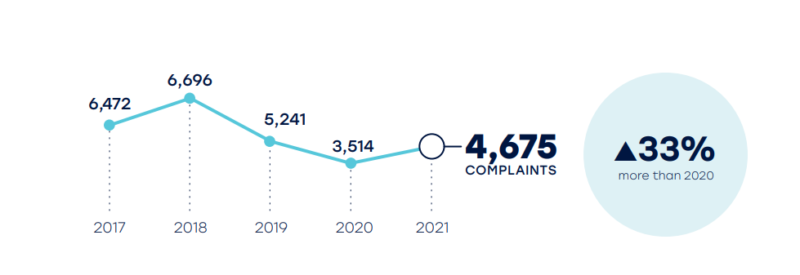Ad Standards complaints for 2021 jump 33% on previous year
Adland’s self-regulatory body, Ad Standards has released its complaints figures from 2021, with the total number of complaints growing 33% on the previous year, following several years of decline since 2018.
According to the organisation’s 2021 Review of Operations report, sex, sexuality and nudity was the top concern dominating complaints to Ad Standards, despite having fallen slightly to 21.31% of all complaints, compared to 32% in 2020.



Thanks for raising this topic and bringing awareness to this. Some key points raised in Mumbrella’s recent piece here:
https://staging.mumbrella.com.au/unconscious-bias-is-more-than-hiring-and-casting-the-entire-marketing-process-needs-upheaval-738388
The statistics do need to be reviewed with broader context too or we can mistake these for being more positive than they are.
– Less complaints doesn’t mean the system is working
– Less complaints on one channel and movement to another channel in line with channel growth indicates the problems still exist
– Moving to ‘other codes’ is often difficult and there is no natural referral process from one body to another once the ASB has it at the ‘top of the tree’ so to speak. The other codes rely on the bodies picking them up independently and doesn’t necessarily mean the ASB is doing a fabulous job here
– There are still many topics that are not even addressed by any code at all and because of that the actual laws that are in place have no way to be activated. There is no pathway to legal proceedings when the code doesn’t accommodate the issues, there are no penalties or sanctions other than ‘cease and desist’ without any real control if the offenders don’t comply. Harmful stereotypes is one issue in particular that is not address and proven to cause harm through domestic violence, bullying and mental health issues.
I’d love the AANA in charge of ASB to have more transparency and pro-active work to fix this issue that affects all Australians.
The data that they publish is presented positively and selectively and doesn’t link back to social context.
Having a self-regulation system with no accountable oversight is the major concern here as they have no drive to do the right thing, and think that listening to the public’s bias is the way to gauge market readiness. Those figures show us in part that the people who complain are heavily weighted certain ways. We don’t have accurate data on socio-economic or background bias…. but I could make a good guess on this.
Let’s hope that this visibility is a start to some better accountability and less self-interest in the self-regulation system. Just saying…